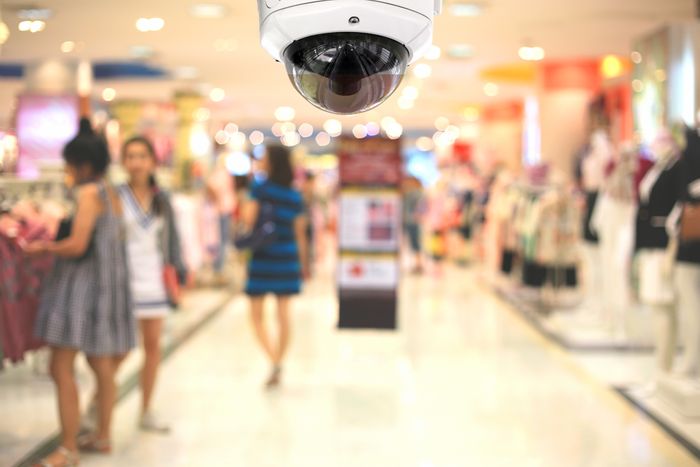
- September 8, 2023
- |security guard company
- | 0
Managing Conflict –
In the dynamic world of retail, security guards serve as the frontline defense against various security threats, including aggressive or hostile individuals. These situations can be challenging and potentially dangerous, making it crucial for retail security guards to be well-trained in conflict management and de-escalation techniques. At XPressGuards, we recognize the importance of ensuring a safe shopping environment for both customers and employees. In this article, we will explore how security guards in retail settings deal with aggressive or hostile individuals while maintaining a secure and welcoming atmosphere.
Understanding the Role of Retail Security Guards
Before delving into the strategies used to handle aggressive or hostile individuals, it’s essential to understand the multifaceted role of retail security guards:
1. Prevention: Retail security guards are responsible for preventing theft, vandalism, and other security breaches. Their presence alone serves as a deterrent to potential wrongdoers.
2. Customer Assistance: Security guards often provide customer assistance by giving directions, answering questions, and ensuring a positive shopping experience.
3. Observation: Guards continuously monitor surveillance systems, patrol the store, and identify any unusual behavior that may indicate potential security threats.
4. Conflict Resolution: When conflicts arise, security guards are trained to resolve them peacefully and professionally, keeping both customers and employees safe.
5. Emergency Response: In the event of emergencies, security guards play a crucial role in responding swiftly and efficiently, whether it’s a medical issue, fire, or security breach.
Handling Aggressive or Hostile Individuals: Best Practices
Dealing with aggressive or hostile individuals in a retail setting requires a combination of training, communication skills, and situational awareness. Here are the best practices that retail security guards employ:
1. De-escalation Techniques
De-escalation is the cornerstone of handling aggressive individuals in a non-confrontational manner. Retail security guards are trained in verbal de-escalation techniques, which involve:
– Maintaining a calm and composed demeanor.
– Actively listening to the individual’s concerns.
– Using empathy and understanding to diffuse anger or frustration.
– Offering viable solutions to the problem.
By using these techniques, security guards aim to lower the emotional intensity of the situation and encourage a peaceful resolution.
2. Clear Communication
Effective communication is essential when dealing with hostile individuals. Security guards use clear and concise language to convey their expectations and requirements. They also explain any store policies or rules that may apply to the situation. Transparency can help prevent misunderstandings and reduce tension.
3. Maintain a Safe Distance
Security guards maintain a safe distance from aggressive individuals to ensure their safety and create a physical buffer. While they remain vigilant, they avoid invading personal space, which can exacerbate confrontations.
4. Request Assistance
In situations where an individual’s behavior becomes increasingly hostile or poses a threat, security guards are trained to request backup or assistance from law enforcement if necessary. Ensuring the safety of all individuals involved is the top priority.
5. Active Observation
Security guards are trained to actively observe their surroundings and the behavior of individuals within the store. By identifying signs of potential aggression or hostility early, they can intervene proactively and prevent situations from escalating.
6. Maintain Professionalism
Security guards uphold a high level of professionalism in all interactions, even in challenging situations. They avoid engaging in arguments or retaliatory behavior and remain focused on resolving the issue peacefully.
7. Follow Store Policies
Security guards are well-versed in the store’s policies and procedures. They ensure that any actions taken align with these policies and do not violate the rights of individuals involved.
8. Document Incidents
After an encounter with an aggressive or hostile individual, security guards document the incident thoroughly. This documentation includes the date, time, location, names of individuals involved, descriptions of behavior, and any actions taken. Detailed records are crucial for investigations and legal purposes.
9. Seek Additional Training
Continuous training is vital for security guards to improve their conflict management and de-escalation skills. Retail security companies often provide ongoing education and scenario-based training to enhance their guards’ abilities.
Legal Considerations
It is important for retail security guards to be aware of legal considerations when dealing with aggressive individuals:
– Security guards must act within the boundaries of the law and avoid using excessive force or violence.
– They cannot detain individuals without legal justification, and any use of force must be proportionate to the threat.
– Security guards should be cautious when physically intervening, as it may lead to liability issues if not done correctly.
In the fast-paced world of retail, security guards play a crucial role in maintaining a safe and welcoming shopping environment. Dealing with aggressive or hostile individuals is a challenging aspect of their responsibilities, but it is one they approach with professionalism, training, and a commitment to conflict resolution.
By employing de-escalation techniques, clear communication, and a focus on safety, security guards in the retail sector ensure that confrontations are managed peacefully, preventing harm to customers, employees, and the reputation of the store. At XPressGuards, we take pride in the dedication and expertise of our retail security personnel, who contribute to the security and well-being of all individuals in the retail environment. Contact us to learn more.


